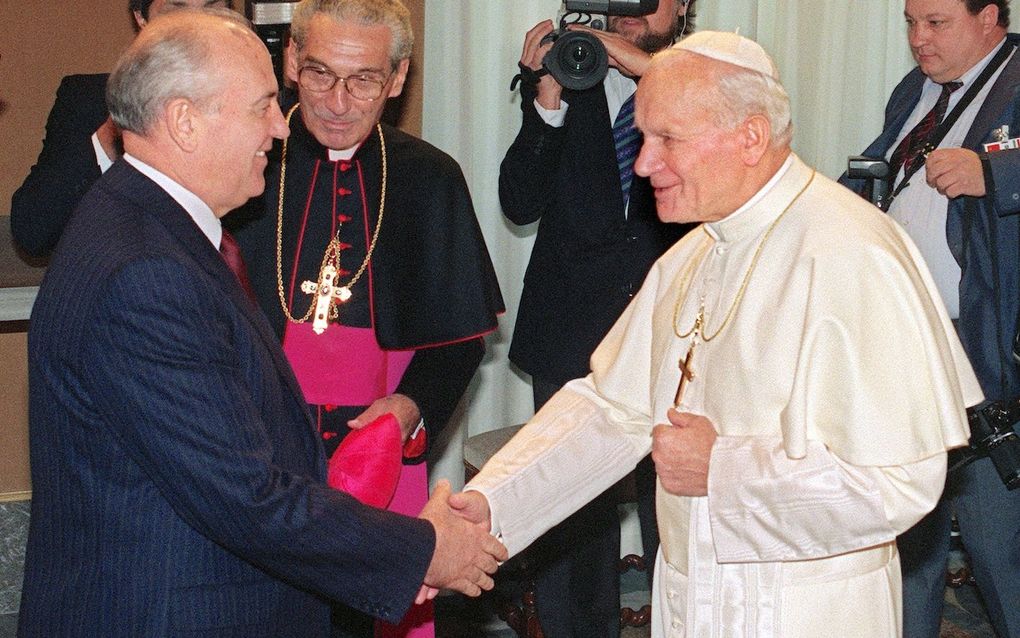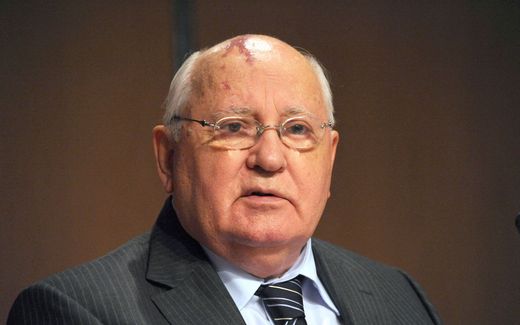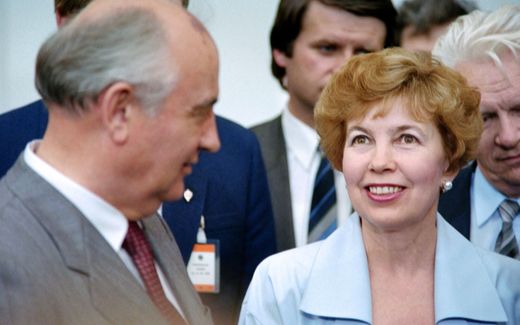Gorbachev surprised churches in Europe by ending politics of atheism
01-09-2022
Eastern Europe
CNE.news

At a visit to the Pope in early December 1989. Photo AFP, Derrick Ceyrac
Eastern Europe
Nobody had expected that the Soviet Union would relax its anti-religious policy. But then, Gorbachev surprised the world with his reforms. Churches in Europe praise the late Soviet leader, Mikhail Gorbachev.
It was Gorbachev who gave Christians of various denominations the freedom to practice their faith. That was said by Sergey Ryakhovsky, the head bishop of the Russian United Union of Evangelical Christians (Pentecostals), according to RIA Novosti.
"Christians of all denominations appreciated him", the bishop said. "He gave people the opportunity to believe in God freely. I was well acquainted with Mikhail Sergeyevich; I met him more than once. I have no doubts about the sincerity of his aspirations for the best, that he sincerely believed in God in the later period of his life", according to the Pentecostal leader.

What Gorbachev did, was no less than a "miracle", Ryakhovsky says. "My father was repressed three times in Soviet times. Gorbachev's reforms were an answer to the prayers of generations of Christians in the USSR, many of whom were repressed. We received freedom to preach the Gospel in places absolutely inaccessible to us in Soviet times," the bishop explained.
Catholic News reminds its readers of the good relationship between Pope St. John Paul II and Gorbachev. John Paul was from Poland and is known to be critical of classical Communism. He was undoubtedly sympathetic to Mr Gorbachev's efforts to change direction.
After Pope John Paul died in 2005, Gorbachev called him "the number one humanist on the planet."
Finland
Of the Western countries, Finland always had a close relationship with Russia and the Soviet Union. The Finnish Lutheran Archbishop Emeritus John Vikström remembers the enthusiasm that Gorbachev arose in others. He was present at the thousand-year celebration of the "Baptism of Russia" in 1988. "Together with numerous ecumenical guests, we got to experience how the state's relationship with the churches had suddenly changed in the spirit of glasnost. This became particularly clear, for example, at the big reception organised by the state in the Kremlin, where Gorbachev was a central figure."

To the Finnish magazine Kotimaa, Vikström says that Gorbachev wanted to reform the system, not dismantle it. Still, he unleashed such forces of change that he could not control.
Another Fin, Kimmo Kääriäinen, remembers that Gorbachev "defended an atheistic policy" at the beginning. But after the 1988 celebrations, he made a U-turn. First, he met with the Orthodox leadership. "He thanked the church for its patriotic role during the Great Patriotic War", Kääriäinen says.
"Amendments to the Freedom of Religion Act were soon initiated, and the new Freedom of Religion Act entered into force in October 1990. It gave all religions equal operating conditions and contained a clause in which the state no longer finances atheistic propaganda. The atheistic empire of the Soviet Union collapsed into it."
Germany
The German Bishops' Conference chairman, Georg Bätzing, states that the Western church owes a lot to this man. "The reunification of Germany became just as possible as a new awakening of church life in the former Eastern bloc countries," said the Limburg bishop on Twitter. The world would be different today if it weren't for him and his intervention when the Berlin Wall fell. "Glasnost and the end of the Iron Curtain are thanks to him."
The German bishop still sees Gorbachev's work as an encouragement for peace and reconciliation in the world. "More than ever, this new world order based on freedom is threatened by recent political developments and autocratic regimes," Bishop Bätzing continued.
Gorbachev had been a member of the Central Committee of the Communist Party of the Soviet Union (CPSU) since 1971 and became its General Secretary in 1985. In 1988 he became President of the Soviet Union. Gorbachev's policy of opening up and détente contributed significantly to the end of the Cold War, the freedom of the churches in the Soviet world, the fall of the Iron Curtain and the end of the German-German division. The buzzwords "glasnost" and "perestroika" stand for his politics, which can be translated as "transparency" and "reformation", as Katholisch.de sums up.
He died on Tuesday evening at the age of 91.

Related Articles




